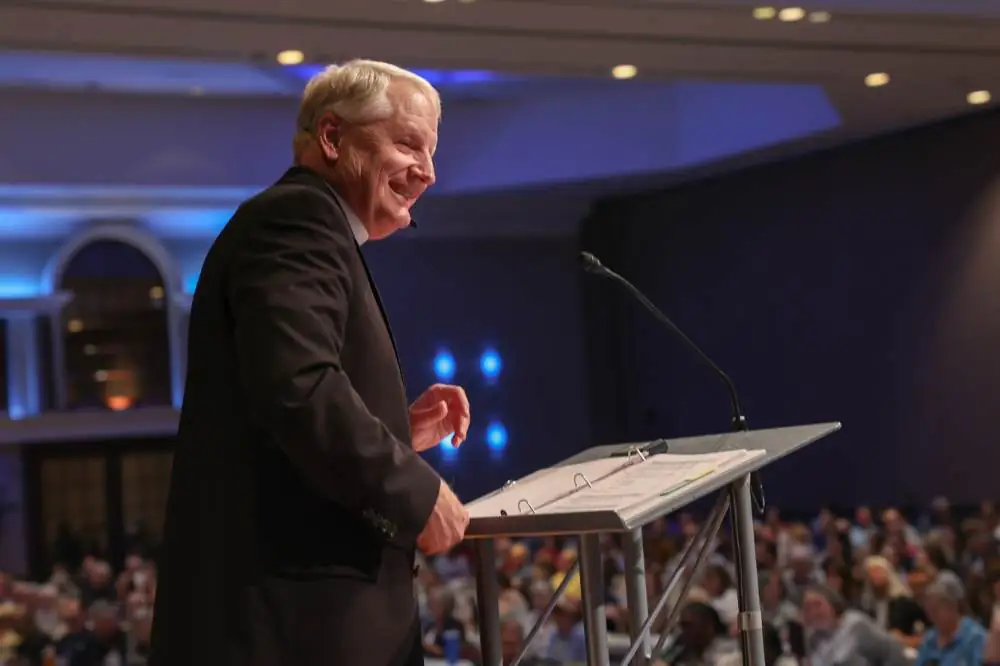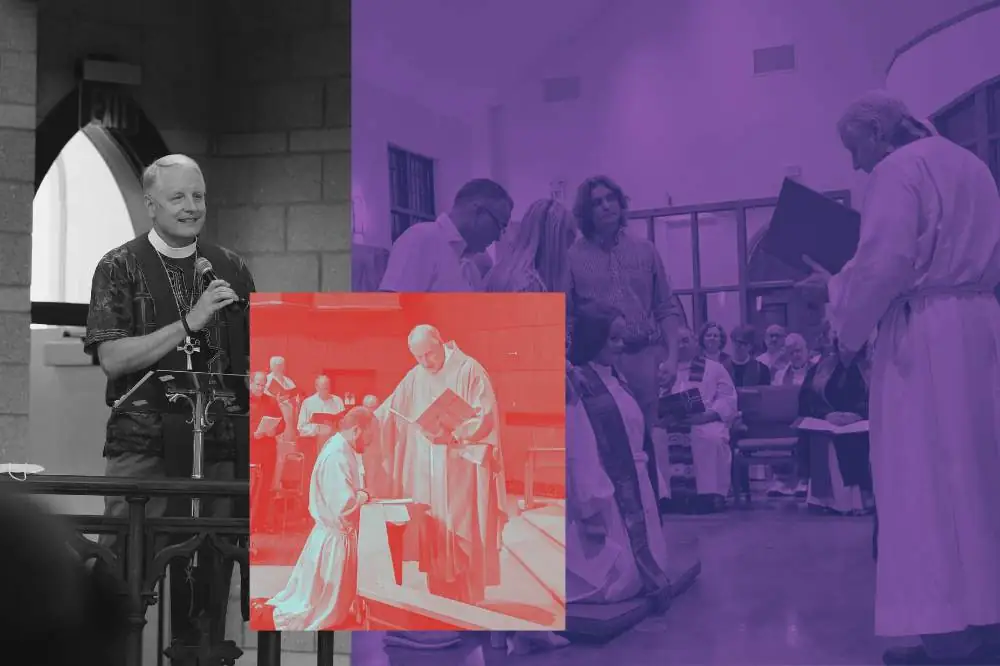A couple of dozen bishops recently read the book by Gil Rendle titled Countercultural and discussed it at some length at last week’s Conference of Bishops in Chicago. It’s one of the more helpful and hopeful books regarding the future of church, including institutional church, that I’ve read in some time.
If I were to boil down how I heard his message, it seemed to me to be similar to several scriptural texts—especially apocalyptic ones—in which the hearers found their faith life as they understood it either on the verge of collapse or even after collapse. That word was simply, “Hang in there. We are in the world but not of the world (countercultural) as the church. God is still up to something and about to do a new thing.”
What was new and has me pondering whether it’s just wishful thinking or actually so is Rendle’s assertion that no culture can survive without institutions. He is careful to distinguish institutions from organizations (which come and go), but institutions, he says, aren’t merely tolerable but necessary for the survival of culture—i.e., finding a way forward together with at least a minimum agreement as to what the rules are for the common good. The biggest enemy in recent generations is the rampant prioritization of the “I” to the detriment of the “we.”
Rendle believes that we are at a profound juncture that, if one studies history, one can somewhat predict. While I have (perhaps incorrectly) understood postmodernism and post-Christendom to be the death of all things institutional, Rendle points to several points in history (with the 1870s being the most recent) for which culture descends into complete chaos and subjectivity—the deification of the “I” and demonization of institutional norms that squelch the “I,” and fueled by deconstructionists who may be sincere but have no replacement plan. Hey, I can take a computer apart, but I don’t know how to put it back together.
The good news, says Rendle, is that thus far when cultural institutions have become so disjointed and distrusted (and perhaps corrupt) in self-preservation, while the result could be chaos or cultural annihilation, it also drives people back to corporate values and norms and institutions that carry and perpetuate them. Rendle makes a good and hopeful case similar to that of the hymn, “Canticle of the Turning.” The world is about to turn. The pendulum has reached a precarious apex and is on the verge of swinging the other way. Desperate voices on either end of the polarized spectrum are trying in vain to “win,” but it is the simple word of the Gospel, counterculturally, to which people will be drawn. Common good can never be achieved at either end of the culture wars spectrum but only in complexity. There is no utopia on either end of that spectrum. The book of Acts shows us that from the beginning, the countercultural church has itself—think Peter and Paul—not been of one mind but has found common values as the way to move forward.
I’m not really doing justice to the book in this simplified (and through my own filters) synopsis, but again, I can’t help but think Rendle is on to something. So as Rendle urges, I say to you, “Hang in there. Don’t be afraid to speak a countercultural word that is the Gospel.” That is our identity and truth and hope, whether the culture responds affirmatively or not. But institutions, human and fallible though they are, are necessary. When the culture wars dust settles and we’ve grown weary of all the ways church strives to be “relevant” in cultural terms, we will find our stride and purpose and hope again as church by continuing to tell—and enact—the old, old story of Jesus and his love.
Walking with you,





